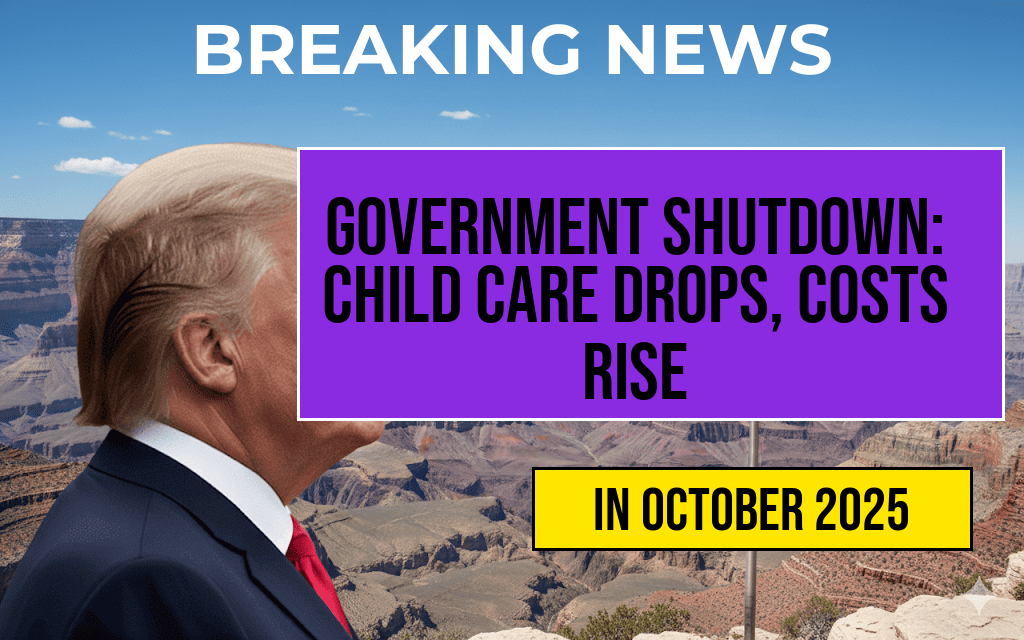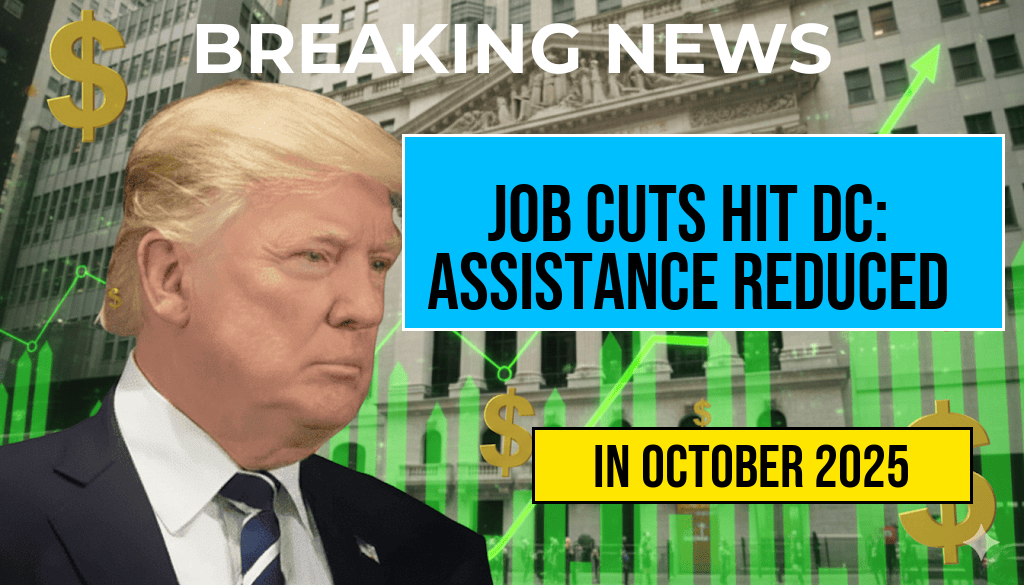As federal job cuts ripple through the Washington, D.C. area, local governments are feeling the strain, prompting a reduction in assistance programs for those affected. Thousands of workers have been laid off due to budget constraints and shifting priorities within federal agencies, creating a challenging economic landscape. The ramifications extend beyond job loss, as laid-off employees grapple with a shrinking disposable income, leading to increased demand for social services. Local authorities, already stretched thin, are now forced to make tough decisions about how to allocate resources in an environment of dwindling federal support, exacerbating the challenges faced by displaced workers.
Impact of Federal Job Cuts
The recent wave of job cuts within federal agencies has resulted in significant layoffs that have reverberated throughout the D.C. metropolitan area. According to the Bureau of Labor Statistics, the decline in federal employment has been steep, with nearly 10,000 jobs eliminated in the past quarter alone. This has led to a decrease in household incomes, impacting the local economy and increasing reliance on public assistance programs.
Local Government Response
In response to the influx of laid-off workers seeking assistance, local governments in the D.C. area are reevaluating their budgets and social services. The District of Columbia has reported a 30% increase in applications for unemployment benefits, overwhelming the agency responsible for processing these claims. As a result, local officials have been compelled to cut back on funding for essential programs such as food assistance and emergency housing.
- Increased applications for unemployment benefits
- Reduction in funding for food assistance
- Emergency housing program facing budget cuts
Challenges for Laid-Off Workers
Laid-off workers are facing a multitude of challenges as they navigate this difficult period. With the shrinking USD value, many are finding it increasingly difficult to make ends meet. Financial experts warn that the trend of rising inflation combined with reduced income could lead to a surge in homelessness and food insecurity among those affected.
Local organizations like the American Red Cross and various food banks are stepping up to provide assistance, but they are also feeling the pinch. Many rely on donations from local businesses, which are struggling themselves due to the economic downturn. This creates a vicious cycle that puts additional pressure on community resources.
Long-Term Economic Consequences
The long-term implications of these federal job cuts may extend well beyond immediate financial hardships. Economists warn that a sustained reduction in federal employment will likely lead to decreased consumer spending, which is vital for the overall health of the economy. As disposable incomes dwindle, local businesses may also face declining sales, potentially leading to further job losses.
Community Initiatives and Support
In light of these challenges, various community initiatives are being launched to support displaced workers. Workforce development programs aim to retrain individuals for jobs in sectors less affected by federal employment trends, such as technology and healthcare. These programs, however, require significant investment and time to yield results.
- Workforce development programs to retrain workers
- Collaboration between local businesses and training organizations
- Increased outreach to vulnerable populations
Looking Ahead
As the situation continues to evolve, local leaders are calling for renewed federal investment in the D.C. area to mitigate the impacts of these job cuts. Advocates argue that without strategic intervention, the economic fallout could hinder recovery efforts and worsen living conditions for many families. The need for a balanced approach that prioritizes both job creation and social support is crucial in addressing the challenges posed by these job cuts.
While the federal job cuts are reshaping the economic landscape of Washington, D.C., the resilience of local communities and the efforts of organizations committed to providing assistance may help to alleviate some of the immediate impacts. As the region adapts to these changes, the focus will increasingly need to shift towards sustainable solutions that can support displaced workers and promote long-term economic stability.
Frequently Asked Questions
What are the recent federal job cuts affecting Washington, D.C.?
The recent federal job cuts have led to significant reductions in employment opportunities in the Washington, D.C. area, impacting local economies and services.
How has the county responded to the job cuts?
In response to the job cuts, the county has reduced various forms of assistance to residents, aiming to manage the financial strain on local resources.
What challenges are laid-off workers facing?
Laid-off workers are confronting a shrinking USD, which contributes to financial insecurity and difficulties in meeting basic needs, as they search for new employment opportunities.
Are there any programs available for those affected by the job cuts?
Yes, there are programs aimed at providing support and resources for those affected by the job cuts, including job training and financial assistance initiatives.
What is the long-term outlook for the job market in D.C.?
The long-term outlook for the job market in D.C. remains uncertain, as the effects of federal job cuts continue to unfold, potentially leading to further economic challenges.











